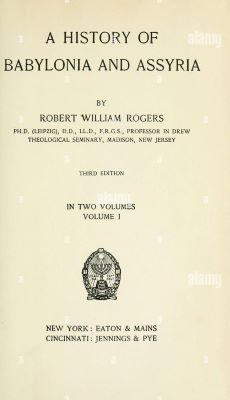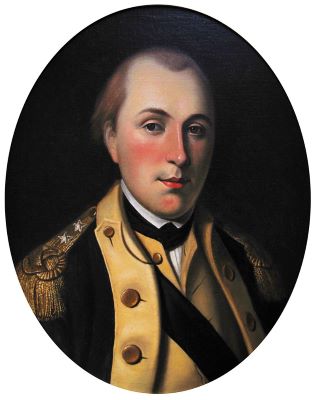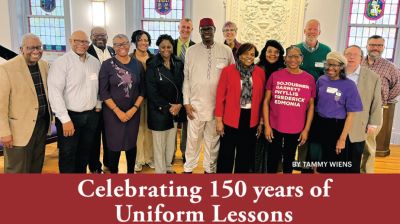Last week, I described what I think is a significant perilous trend facing history and the American culture through the process of hypehnization. I argued that identity in a society nominally based on We the People and e pluribus unum was being replaced by one where people self-identify as hyphenated Americans, with corresponding history classes and museums to reflect these differences.
Diversity resonates in New York history. Take William Johnson, the the British royal agent in the 18th century, and an Irishman. His European world consisted of Dutch, French, English, and German (Palatines), all of whom were distinct from each other, as demonstrated for example, by the French and Indian War.
The French and Indian War also demonstrates that First People weren’t simply one undifferentiated mass. The Iroquois, Lenape, and Alqonquin were not a single people, and William Johnson was well aware that the Cayuga were not the Mohawk or the Oneida. Needless to say, the Dutch-founded city of New Amsterdam abounded in people of different races, ethnicities and religions, as it does to this very day.
Lousie Mirrer, President of the New-York Historical Society, in “The Case for ‘American’ in American History,” comments on City University of New York faculty raising the question “What could George Washington possibly have to say…to students who are new to America?” As part of her answer she refers to Frederick Douglas, who celebrated July 4th by calling on Americans to live up to the ideals expressed in their founding documents.
Lin-Manuel Miranda, creator of the new musical Hamilton, like Mirrer, has an answer for those who question the relevance of America’s Founding Fathers to the country’s present and future generations. While reading Ron Chernow’s 800-page biography of Hamilton, he had an epiphany by the second chapter: “I know this guy. Just the hustle and ambition it took to get him off the island…”.
According to the Wall Street Journal, his Hamilton “portrays the lead writer of the Federalist papers as the prototypical New Yorker – a brilliant and brash immigrant who went from orphaned child of the West Indies to become the Secretary of Treasury… The Founding Fathers and Aaron Burr are played by African Americans to underscore the diverse American experience.” Columnist David Brooks refers to the strain of Americanism that Alexander Hamilton represents: the relentless ambition of the outsider, but one who sought redemption in a national mission as a man of honor who justifiably earned eternal fame for his name. As Rebecca Mead writes in the New Yorker, “In Miranda’s telling, the headlong rise of one self-made immigrant becomes the story of America.”
Isn’t that what an Irish George M. Cohan did when he updated Yankee Doodle Dandy, a Jewish Irving Berlin did with God Bless America, and a Sicilian Frank Capra did with Gary Cooper and Jimmy Stewart?
The headlines in the New York Times echo the sentiments in the Wall Street Journal: “Founding Fathers as a Bunch of Chill Dudes” and “Rapping a Revolution.” “History is happening in Manhattan,” claims one young American rebel in the musical and the audience nods in happy agreement. Ben Brantley keenly observes that Miranda “persuasively transfers a thoroughly archived past into an unconditional present state.” More colloquially, one might say, he brings the past to life. Or as Brantley phrases it, “it exudes the dizzying urgency of being caught up in momentous events as they occur.” Isn’t that how we want America’s future voters to connect to and feel about America’s origins?
Brantley further elaborates on this theme by comparing the music of the musical to the popular music of today. He heralds the hip-hop music which embodies the cocky, restless spirit of self-determination that birthed America. He appreciates the casting of America’s ultimate dead white men by living people who are not white to deliver the message that America was created by people who did not originate in America.
As Mead reports, Miranda drew on “Les Misérables,” “Jesus Christ Superstar,” “The Pirates of Penzance,” “The Ten Commandments,” “South Pacific,” and Al Pacino in “The Godfather” to fashion a story of America’s founding. He worked like Shakespeare in his historical plays about Henry to helped create England’s national identity, but instead to renew an American identity.
One observer notes that tourists account for about two-thirds of Broadway theater attendance, with metropolitan New York home to the remaining third. Patrick Healy writing in the New York Times wonders if Hamilton will suffer the same fate as Bloody Bloody Andrew Jackson, another critical musical hit Off Broadway about American history that didn’t connect with Broadway’s tourist crowd and closed shortly after making the move. Let’s hope for a different result.
Of course there could be another venue for Hamilton after Broadway – imagine if high schools performed Hamilton instead of Grease.






First, I have to admit I have not seen this play. That said, two articles I read probably twenty years ago popped into my head when I read this posting. One article said that 95% of the history Americans know is something we saw in a fictional movie, fictional TV show, or read in a novel. The other one was entitled something like “All the history you learned in school was wrong.” Both of these seem to be true.
At one point I wrote two articles based on first-hand information, letters, Congressional testimony, timely newspaper interviews with four survivors of the sinking of the Titanic. Their story was completely different from the movie that won 18 Academy Awards except for the fact that the ship sank.
In 2012, the hundredth anniversary of the sinking, every media outlet including the Smithsonian and New York Times reported the movie version of the event and not what actually happened.
While I agree overwhelmingly that Hamilton was a brilliant, obsessively hard working, American Founding Father, I suspect the play is pure entertainment and Hamilton will take on a new popularity due to stuff that never happened. In a few years the Hip – Hop version of Hamilton’s life will drift into our textbooks.
…”America” is an on-going work-in-progress. Its future is inevitable. Its stunting development may only be caused by its continuing gluttony on hypocrisy, its futile racist, white supremacist ideology and failure to learn, heal from its history…and the reconciliation of its “white” founders own historic trauma as the first slaves and the epigenetic effects of this history on their own descendants. America’s social pathology has been casted in its past. Rewriting history, along with a revisit and study of the mold from which it was casted is critical to break the patterns of its social pathology towards an enlightened future.